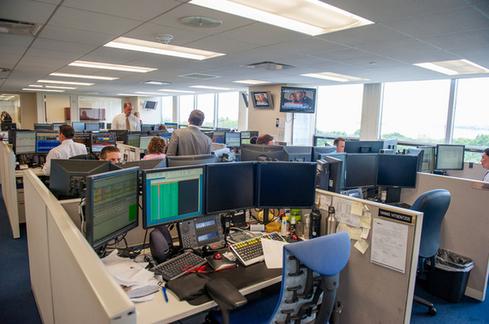10:05 AM
Post-Crisis, Banks Paying Close Attention to Vendor Risk When Choosing Tech Partners
As the economic crisis has brought intense scrutiny on the securities industry, it in turn is changing the way Wall Street firms choose their technology partners. According to industry insiders, independent software and hardware vendors are facing more scrutiny from financial organizations than ever before as banks increasingly worry about investing millions of dollars in a technology project with a vendor that could go bankrupt or get swallowed up by a bigger firm.
"Financial stability is a big thing; it has become more important," says Aite Group research director Adam Honore of Wall Street firms' potential technology partners. "I have seen people taking a deeper dive into the financials of companies. We've been recommending it. It's smart business."
Until the financial crisis, Wall Street wasn't too concerned with the financials of a software supplier for a couple of reasons, Honore explains. No. 1, software vendors were generally doing well. But more important, the banks also were doing well.
But today banks are cautious of all risk, and they increasingly are looking at how well vendors are managed and whether they are going to be able to deliver products for the long term. "The ability to service is very vital. Firms have to demonstrate their financial viability," says Sultan J Khan, practice head, IT strategy and governance, Tata Consultancy Services. "If there are concerns about that, that's where alliances come in. An alliance gives a client a comfort level that with or without a certain player, the technology will continue."
There certainly has been churn in the vendor landscape recently. Sybase's February acquisition of Aleri followed Aleri's March 2008 acquisition of another CEP provider, Coral8. Also in February, Thomson Reuters bought Aegisoft, a provider of electronic trading solutions and testing tools. This followed SS&C Technologies' January announcement that it had acquired Tradeware Global, a broker-neutral provider of systems for global equity market access.
Vendor Risk: A 'Competitive Consideration'
Terry Holliday, who retired from Goldman Sachs in 2009 after a 30-year career with the firm that included roles in technology, finance, operations and risk management, says Goldman has always carefully evaluated vendors' financials, even before the crisis. But she acknowledges that vendor risk has become more of an issue in today's market.
Choosing a technology partner today is a "competitive consideration [based on] a combination of the flexibility and the financial health of a company," says Holliday, who now does consultancy work with Diamond Management & Technology Consultants. "It's true for both niche and broader vendors."
Mo Hirani, managing director at international advisory firm Tactico, agrees that vendor risk, though always a consideration, has become much more important to banks. "Banks are doing much more of a sniff-test of vendors," says Hirani, who previously served as co-CIO of Penson Worldwide, a U.S.-based financial services clearing and outsourcing firm, and also was a senior manager at Merrill Lynch Canada.
"Particularly where they may have trusted firms with their core client data, there's a bigger push to install locally," he adds. "We're seeing it in areas of client reporting, financial reporting and risk management -- any areas that affect intraday risk."
The reluctance of financial organizations to sign deals with small vendors due to perceived financial risk rose markedly in 2009, according to Jeff Wootton, senior director of product management at Sybase. Wootton previously was VP of product strategy at Aleri until Sybase acquired the provider of complex event processing technology in February.
In Wall Street firms' minds, Wootton suggests, any small independent software vendor whose future -- or future independence -- isn't assured presents risk. "Before we were acquired by Sybase, as an independent company, this was becoming more significant," he says of Aleri. "Economic issues have put a heightened sensitivity on this."
Wootton reveals that the issue cropped up in a number of deals Aleri was trying to negotiate prior to the Sybase acquisition. The banks, he says, made their thinking clear. Aleri managed to reassure many customers about the company's financial health, according to Wootton, but it still came up frequently during negotiations.
"At least in one case, in a deal we lost, we were told unequivocally by the customer that while we were their first choice in technology, they felt they couldn't afford to take the risk, as they felt Aleri's future was at risk," Wootton reports. "In hindsight, they were right. But while Aleri didn't stay an independent company, the fact that it was acquired by Sybase means our customers are in a good position."
But Sybase's acquisition of Aleri, Wootton insists, isn't as much a reflection on Aleri's health as a company as it is a reflection of what is going on in the market. "We didn't run into this issue prior to last year," he says. "We were certainly larger [than some other independent vendors], and our business was growing last year."
Still, some banks were worried about Aleri's future, and that did become an increasingly significant barrier to the company as a small independent technology provider, Wootton admits. "There were a number of deals where firms ... had concerns about the risk inherent in using Aleri technology given that the future of the company in their view was uncertain," he concedes. "That was one thing that led us to conclude we needed to be part of a bigger organization."
Melanie Rodier has worked as a print and broadcast journalist for over 10 years, covering business and finance, general news, and film trade news. Prior to joining Wall Street & Technology in April 2007, Melanie lived in Paris, where she worked for the International Herald ... View Full Bio

























